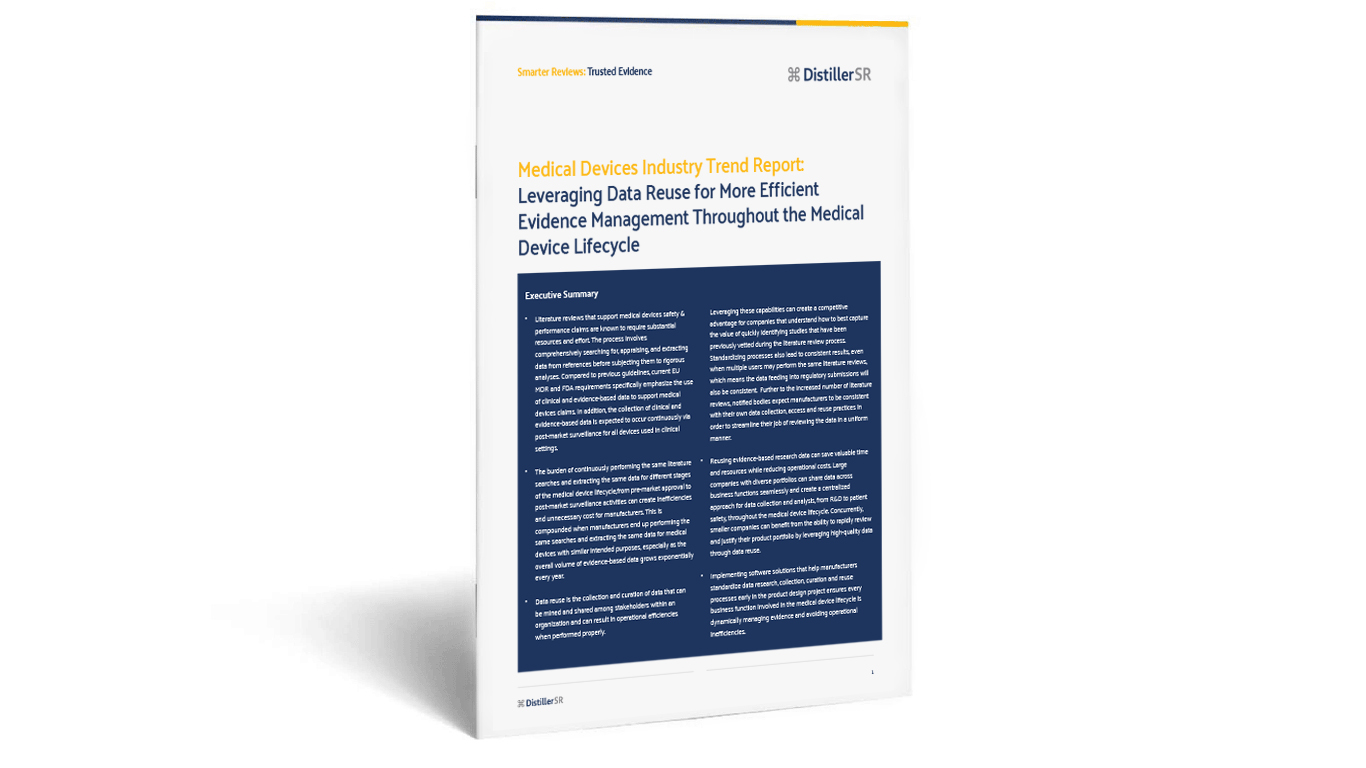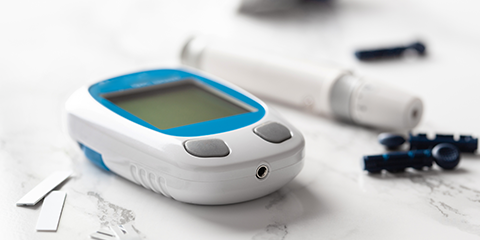Medical Devices Industry Trend Report
Leveraging Data Reuse for More Efficient Evidence Management Throughout the Medical Device LifecycleExecutive Summary
- Literature reviews that support medical devices safety & performance claims are known to require substantial resources and effort. The process involves comprehensively searching for, appraising, and extracting data from references before subjecting them to rigorous analyses. Compared to previous guidelines, current EU MDR and FDA requirements specifically emphasize the use of clinical and evidence-based data to support medical devices claims. In addition, the collection of clinical and evidence-based data is expected to occur continuously via post-market surveillance for all devices used in clinical settings.
- The burden of continuously performing the same literature searches and extracting the same data for different stages of the medical device lifecycle, from pre-market approval to post-market surveillance activities can create inefficiencies and unnecessary cost for manufacturers. This is compounded when manufacturers end up performing the same searches and extracting the same data for medical devices with similar intended purposes, especially as the overall volume of evidence-based data grows exponentially every year.
- Data reuse is the collection and curation of data that can be mined and shared among stakeholders within an organization and can result in operational efficiencies when performed properly.
- Leveraging these capabilities can create a competitive advantage for companies that understand how to best capture the value of quickly identifying studies that have been previously vetted during the literature review process. Standardizing processes also lead to consistent results, even when multiple users may perform the same literature reviews, which means the data feeding into regulatory submissions will also be consistent. Further to the increased number of literature reviews, notified bodies expect manufacturers to be consistent with their own data collection, access and reuse practices in order to streamline their job of reviewing the data in a uniform manner.
- Reusing evidence-based research data can save valuable time and resources while reducing operational costs. Large companies with diverse portfolios can share data across business functions seamlessly and create a centralized approach for data collection and analysis, from R&D to patient safety, throughout the medical device lifecycle. Concurrently, smaller companies can benefit from the ability to rapidly review and justify their product portfolio by leveraging high-quality data through data reuse.
- Implementing software solutions that help manufacturers standardize data research, collection, curation and reuse processes early in the product design project ensures every business function involved in the medical device lifecycle is dynamically managing evidence and avoiding operational inefficiencies.

Download the full Report
Get all the insights about how data reuse can help your organization save time, money and allocate resources more efficiently by centralizing evidence management throughout the device lifecycle.
Related Resources

Blog
How DistillerSR has empowered market leaders Philips and Alcon to achieve faster and more accurate literature reviews for CER submissions.
Philips
Philips achieves faster, more accurate literature reviews for CER submissions with DistillerSR.

Blog
Developing a repeatable, transparent process will lead to streamlined, audit-ready, and compliant literature reviews for your PER submissions.



